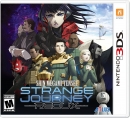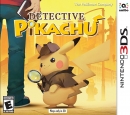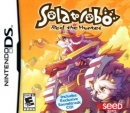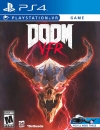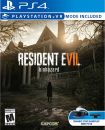00Xander00 on 19 February 2024
What is it that makes a RPG and RPG, What are the basic foundations that determine what is a RPG?
I personally define RPG as a game were you build a character throughout the game (role playing game). The start of the game the character is weak or underdeveloped in skills, but by the end of the game your character is powerful and rich in skills.
And how has the original RPG evolved into nowadays RPG?
In the past RPGs were very numerical. It was very hard to find an RPG were you don't level up your character with a linear number system (number-based RPG). But now the formula has been experimented with in a range of ways that it can blur the line on whether a game is considered an RPG or not, from turn based, real time, action, strategy, collecting monsters, etc.
Hybrid genres can be non-RPG based yet still have RPG elements within it.
Final Fantasy has experimented with a range of mechanics over the years, from Group battles, turn-based, real time, action, etc.
Fire Emblem is a turn-based strategy RPG. A good example of a hybrid.
Zelda is an action-adventure, but it's also a pragmatic RPG because instead of increasing the numbers to build Link, the player used practical means to build the character like collecting items and abilities. He starts off weak and lost, but in the end he is a strong hero that can navigate to anywhere in the terrain. I also define Metroid (and other Metroidvania games) as pragmatic RPGs (including the main Resident Evil games) for the same reason.
Pokémon is a game were you collect creatures and train them up. This is like a subgenre of it's own.
Modern AAA RPGs tend to be action-based such as the Witcher 3. This has worked out well for many modern games.
Online multiplayer has added a dynamic that never existed before. MMORPGs like World of Warcraft stood out from single-player RPGs that came before it.
It's not just about new mechanics (but it mainly has been); themes have also evolved the genre over the years. Fallout is a western RPG that is themed in a post-nuclear environment, this is different from the stereotypical theme of a Medieval setting that western RPGs have done to death and beyond.
How does a RPG differ from a JRPG?
RPGs are typically western and have realistic western characters & western themes. Medieval themes tend to be the main setting such as Elder Scrolls, Might and Magic & World of Warcraft.
Whereas JRPGs tend to have an anime aesthetic and made in Japan with character being the main driver of storytelling rather than the lore. There is an emphasis on adventure & drama themes too. There are a lot of unusual creature designs in RPGs such as Final Fantasy enemies, dragon Quest, Pokémon, Monster Hunter etc.
Even though RPGs and JRPS are distinctively different, the lines can blur at times though such as Elden Ring.
What can be done to elevate the RPG (or JRPG) experience?
Nuance of game mechanics.
New themes.
Hybrid of genres (& themes).
VR :D
True A.I. (something that has never been done to the complex degree that I am thinking of (ChatGPT style).
What has been done to make the RPG (or JRPG) experience worse?
Linearity such as FF13.
Being too samey as other RPGs.
Dear OP, I hope my answers were helpful. Sounds like your making/design a game or writing an essay in game design :)
I have (or have/had in the household): ZX Spectrum, Commodore 64, Amiga, NES, Sega Master System, Super Nintendo, Sega Megadrive, Gameboy, Playstation, Nintendo 64, Windows 95, Gameboy Colour, Windows 98, Sega Dreamcast, Gameboy Advance, PS2, Gamecube, Xbox, Windows XP, Nintendo DS, Xbox 360, Wii, PS3, Windows Vista, iPhone, Windows 7, 3DS, Wii U, PS4, Windows 10, PSVR, Switch, PS5 & PSVR2. :D
and I Don't have: Magnovox Odyssey, Any Atari's, Any Macintosh computers, Sega Gamegear, Virtual Boy, Sega Saturn, N-gage, Xbox One, Xbox Series X/S, PSP, PSVita & Andoid Phone. Plus any non-mainstream consoles/platforms I haven't mentioned.
























